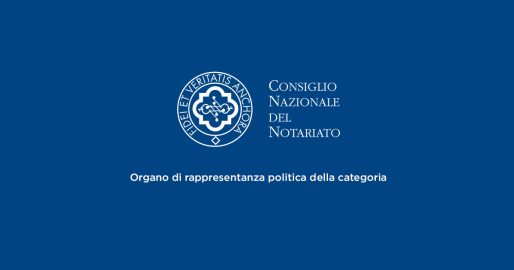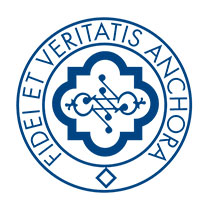They know too little about wills and charitable legacies – and that is understandable given their young age – but 55-60% are ‘curious’, open-minded and interested in giving to others through their last will and testament, 25-30% are ‘altruistic’ and have already decided to provide for such a legacy in the future, while 15-20% are (legitimately) ‘selfish’, wary, unwilling to share with others what they possess. These are the profiles of young Italians, photographed by an original DOXA survey made for the Committee for Charitable Wills of young men and women aged 18 to 34 years; they were directly quizzed about their future, as far ahead as their last wishes. Young people, almost half of whom turn out to be generous, 45% having already made donations to at least one of the organisations that belong to the Committee.
7 OUT OF 10 DO NOT KNOW WHAT A CHARITABLE WILL IS AND 56% DO NOT KNOW ABOUT THE “LEGITIME”
On the whole, young Italians are positive and curious, although 7 out of 10 admit they have never heard of charitable bequests. Among those who already know something about it, 46% learned of the possibility of making a bequest from television, 38% from friends and family, 22% from the press, but some (16%) were made aware of this through social media. That is a sign that this issue, increasingly appearing in current news stories such as the legacies of famous people and the surprising choices of international celebrities to exclude their children, has entered the daily discussions of a growing number of under-35s. More than half of young people (56% of cases), moreover, do not know about the concept of a ‘forced’ share of an estate that is reserved for the heirs and therefore they are not fully informed about their rights. Looking ahead, however, 3 out of 10 consider the “legitime” a form of restriction on the freedom to choose where to allocate assets in a will. In fact, 31% have very clear ideas: they are going to give support and help with a bequest outside of their family circle.
BARTOLI: “INTERESTING RESULTS, NOW WE NEED TO REDUCE THE NUMBER OF THOSE WHO DO NOT KNOW” …
“The results of our survey among young people,” says Rossano Bartoli, spokesperson of Testamento Solidale [Charitable Wills] and Secretary-General of the Lega del Filo d’Oro [Golden Thread League], “are the reason and the future of our campaign: at a time of crisis when there is concern for the future on the part of everyone and an understandable entrenchment in defence of what one has or will inherit, to discover that young people are not closed to solidarity, but rather that 25-30% of them already have in mind to make a bequest or see the forced share as a tool that curbs the freedom to make a will thinking of others, encourages us to move forward in our task of spreading the acceptance of charitable wills in Italy. It is our duty to continue to keep young people informed, reducing that 70% of Italians under 35 who still do not know what a charitable legacy is, giving everyone the means to move towards making a simple gesture of generosity and altruism.”
The Committee is sponsored by six large organisations – ActionAid, AIL, AISM, Fondazione Don Gnocchi, Lega del Filo d’Oro and Save the Children – which are now joined by Aiuto alla Chiesa che soffre [Aid to the Church in Need], Amref, Cesvi, Libera, Fondazione Operation Smile Italy Onlus, Fondazione Telethon, Fondazione Umberto Veronesi, Telefono Azzurro and Università Campus Bio-Medico of Rome, under the patronage of the National Council of Notaries.
CURIOSITY, ALTRUISM, SELF-CENTREDNESS: THE ATTITUDE OF YOUNG PEOPLE TO THEIR LAST WISHES…
The DOXA survey identifies three categories of young Italians when it comes to the idea of leaving part of one’s assets to others by way of a last will and testament.
The majority, 55-60% of those under 35, are Curious. They think it natural and positive to give to others with a bequest (59%); they have not yet decided but consider it an interesting option for the future (55 %); they do not fear impoverishment if their family were to give a share of their wealth to charity (60%); and they see the “legitime” as a form of positive protection of their rights (62%).
In second place are the Altruists, true supporters of generosity and charitable legacies: 25-30% of the respondents find it very fair to donate and already intend to leave a share in their will to charities outside the family. It is the Altruists who consider the legally binding “legitime” to be a restriction on their freedom to decide whom to make the beneficiaries of their will (29%).
A small minority fall into the Selfish category: they are only 15-20% of the total. They are very surprised and sceptical at the idea of a bequest (12%); they do not agree to give to others (14%); and see a testamentary donation made by their family as a potential impoverishment of their own future (26%).
ALBINO FARINA: IMPORTANT TO FIND A BALANCE BETWEEN FREEDOM AND FAMILY SOLIDARITY
“A surprising number of young people know the concept of ‘legitime’ (44% of cases), considering the young age of the respondents and Italians’ lack of attention to wills,” says Albino Farina, the National Council of Notaries’ Director in Charge of Relations with the Third Sector. “Even more interesting is the fact that the survey shows how important it is for young people to find the right balance between the freedom to dispose of one’s property by will and family solidarity. Notaries increasingly find that restricting the freedom to dispose arouses opposition, especially when parents do not believe the behaviour of the children towards them has been deserving. Of the young people interviewed, 62% think from the point of view of children and see in the “legitime” a kind of insurance for their future; 29% already have in mind a vision of wills and legacies that is closer to the Anglo-Saxon model where there are no forced quotas due to the heirs.”
ON THE OTHER HAND, WHAT DO ITALIAN ADULTS THINK ABOUT LEGACIES?
There is a growing acceptance of charitable legacies among Italians. The future choices of young people are becoming oriented towards a charitable bequest, an act of generosity that already today – according to GFK-Eurisko’s Testamento Solidale survey – 9% of Italians over 55 intend to implement. This positive growth has been confirmed over the last 10 years by a 10% increase in the number of Italians who include a bequest in their wills. The majority of those who donate (over 60%) are women. The phenomenon – detected by a survey of a sample of 700 notaries by the Charitable Wills Committee in collaboration with the National Council of Notaries – mostly involves small to medium donations: in more than 50% of cases, the Italian notaries say, the value of the legacy is under Euro 20,000; in 25% of cases the figure is between Euro 20,000 and 50,000; and in 18.1% of cases the economic value is substantial, ranging from Euro 50,000 to 100,000. Only 8.5% of bequests exceed Euro 100,000.
THE INFORMATION CAMPAIGN BEGUN THREE YEARS AGO
The Committee, which is sponsored by six large organisations – ActionAid, AIL, AISM, Fondazione Don Gnocchi, Lega del Filo d’Oro and Save the Children – which are now joined by Aiuto alla Chiesa che soffre [Aid to the Church in Need], Amref, Cesvi, Libera, Fondazione Operation Smile Italy Onlus, Fondazione Telethon, Fondazione Umberto Veronesi, Telefono Azzurro and Università Campus Bio-Medico of Rome, was created to spread the culture of charitable legacies. To respond to those who still do not know where to turn for information the organisations have created a site called www.testamentosolidale.org and a guide by the same name. These two tools provide a comprehensive overview on the topic of legacies, from types of will (holographic, public, secret) to the share of an estate that is “available” for a charitable bequest (any amount of money, movable or immovable property, a life insurance policy, shares or investment securities).






